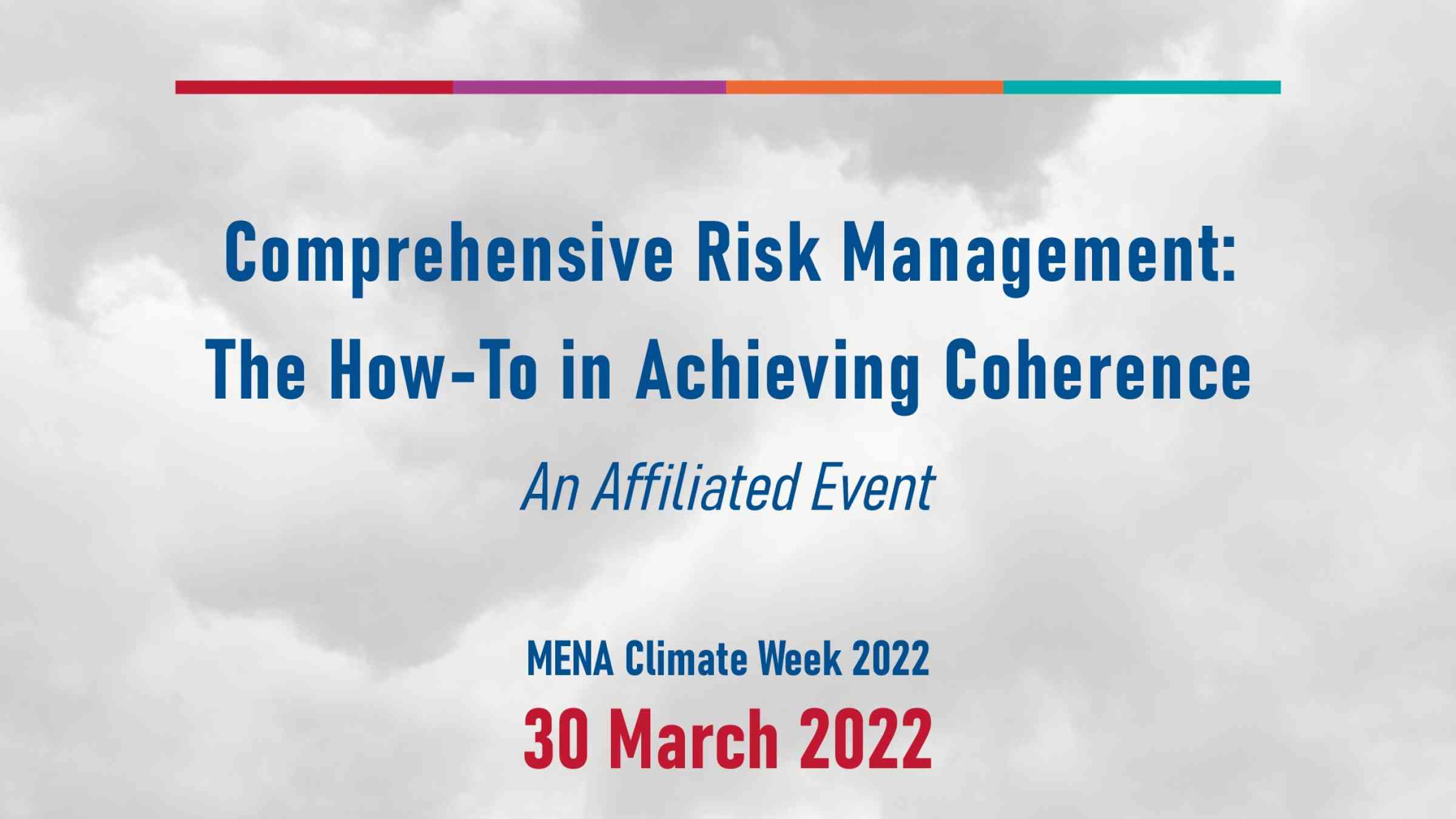Comprehensive Risk Management: The How-To in Achieving Coherence at Middle East and North Africa Climate Week

Atlantis Hotel, Dubai - UAE
https://www.atlantis.com/ar/dubai
- English
Background
The 2030 global agreements specifically recognize the unique opportunity to enhance coherence across policies, institutions, goals, indicators, and measurement systems for implementation and seek to ensure credible links, as appropriate, between these processes. They further call for coherence in the development, strengthening, and implementation of relevant policies, plans, practices, and mechanisms. However, research shows that the types and levels of coherence vary from country to country – from aligning to finding synergies to full integration, with each adding a layer of value.
Nevertheless, at the heart of coherence building is having a shared understanding of risk, which informs policy and planning, and are translated into concrete actions and investments – putting risks and the need to comprehensively address, manage and reduce them, right front and center.
Recent IPCC reports have pointed out that global warming may increase by 1.5 °C by the early 2030s, much earlier than predicted. Climate change is rapidly altering the risk profile of the planet, magnifying the magnitude, frequency, and severity of disasters. Extreme weather events have doubled over the last 20-year period, exacerbating risks and leading to compounding and cascading impacts with adverse consequences on ecological and human systems.
In such a scenario, a comprehensive approach to risk management is needed that takes into consideration a number of factors to purposively strengthen synergies between disaster risk reduction and climate change adaptation, identifying mutually beneficial opportunities across policies and programs.
UNDRR has been working with partner organizations to implement a comprehensive disaster and climate risk management initiative to integrate risk-centered approaches into National Adaptation Plans (NAPs), and climate/forecast information into national and subnational disaster risk reduction strategies, aligning them better with the national adaptation goals.
This session will address the following questions:
- Why is integrated planning important?
- What is Comprehensive Risk Management and how does it promote integrated planning?
- What are the impediments to and opportunities for integrated disaster risk reduction and climate change adaptation planning in the MENA region?
Outcome
Key recommendations on the needs, challenges, and opportunities in integrated planning in the development of key national plans and strategies.
Speakers
- Ms. Nena Stoiljkovic (IFRC) Under Secretary-General
- Mr. Animesh Kumar, Head of UNDRR Office in Bonn
- Dr. Nuha El Tinay- (UNDRR) National Consultant – Sudan
- Mr. Radwan Aden – (SEGRC) Executive Secretariat for Risk and Disaster Management – Djibouti
- Mr. Camilo Tellez (UNDRR-ROAS) Associate Programme Officer
Target Audience
- Sendai Framework / DRR focal points
- NAP and Loss and Damage focal points
- Planning ministries
- National meteorological agencies
- Regional and intergovernmental organizations
- International organizations
- Stakeholders